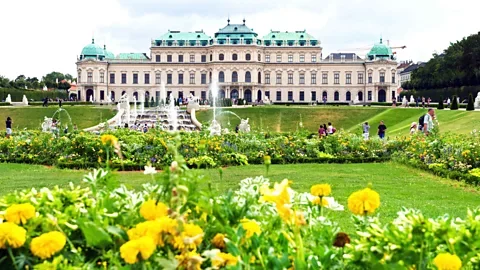
After years of pandemic-induced changes, the world's cities have finally settled into a new normal, at least according to the latest liveability data.
The Economist Intelligence Unit's annual Global Liveability Index, which evaluates 173 cities across stability, healthcare, culture and environment, education and infrastructure, notes the average liveability score has barely increased over the past year (rising just 0.06 points), compared to more significant hops and drops in previous years.
The top cities also look remarkably similar to last year's list as well, with little fluctuation among the top 10. Once again, four European cities made the list, this time with four Asia-Pacific cities and two Canadian cities. All the cities remain the same as 2023 except one: Toronto, which dropped from the top 10 due to falling infrastructure scores associated with a growing housing crisis. No new city entered the top 10, since Osaka and Auckland maintained their status, having tied last year.
But just because the cities have similar rankings doesn't mean they haven't changed in the past year. We spoke to residents of the top ranked places about what they love most about living in their cities and what keeps them most excited for the future.
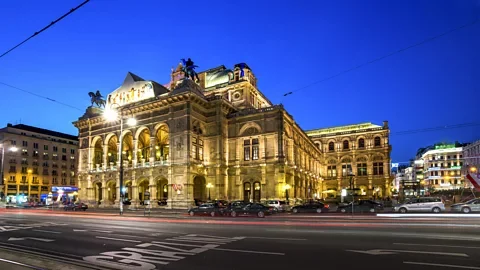
Vienna, Austria
Claiming the title of world's most liveable city for the third consecutive year, the Austrian capital achieved perfect scores in four out of five categories, with only a slightly lower score in culture and environment due to a lack of major sporting events this year. But that doesn't mean the city lacks in either culture or environment - in fact, it's both of those specifically that residents love most.
"When Viennese people return home from a trip, one of the first things they do is turn on the tap to drink a glass of fresh spring water," says Nikolaus Graeser, spokesperson for the Vienna Tourism Board. "Our tap water comes directly from the mountains and has been delivered via the Vienna High Spring Water Main for 150 years."
The Global Liveability Index ranking for 2024
1. Vienna
2. Copenhagen
3. Zurich
4. Melbourne
5. Calgary/Geneva
7. Sydney/Vancouver
9. Osaka/Auckland
It's a place with a variety of things to enjoy as well, whether that's windsurfing on the New Danube, having a glass of wine at a Heuriger (a traditional wine tavern) or taking in the Vienna State Opera, where tickets cost as little as €13. "It's also one of the few cities with a cuisine named after it," notes Graeser. Influenced by Bohemia, Hungary and Italy, "Viennese cuisine" - like the eponymous Wiener schnitzel breaded cutlet and Wiener würstchen sausage - can be found at local "Beisl" pubs and Viennese sausage stands alike.
The city has an efficient public transport network, available for just €1 a day, as well as a well-functioning healthcare system, numerous universities and a high proportion of green spaces. "Vienna operates like a well-oiled machine," says Graeser. "Vienna combines the efficiency of a Northern European city with the lifestyle people from Southern Europe love."
Vienna combines the efficiency of a Northern European city with the lifestyle people from Southern Europe love - Nikolaus Graeser
It is also dedicated to improvement, working to make the city cooler and massively reduce its CO2 emissions. "New 'Grätzeloasen' (small green oases) are being created throughout the city where parking spaces once were," Graeser explains. "Residents can take responsibility for these islands, growing vegetables or planting flowers."
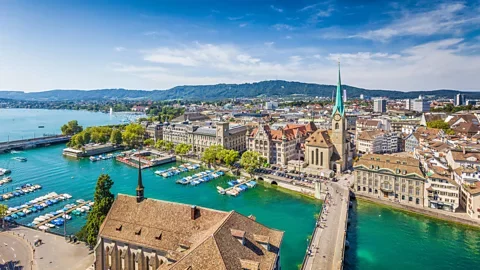
Zurich, Switzerland
Zurich, up three spots in the ranking this year at third place, maintained perfect scores in education and healthcare, also scoring well on infrastructure and culture. Its residents love its public resources as well as the sense of safety they feel in the city.
Zürich is the only place where I leave my phone and wallet before swimming in the lake - Alexandra Humbel
"I take public transportation any time of the day or night without a second thought, and don't lock the apartment door during the day," says Alexandra Humbel, chief marketing officer of People Like Us home exchange. "Zürich is the only place where I leave my phone and wallet before swimming in the lake."
Humbel appreciates the city's cleanliness, efficient public transport and proximity to nature. "I live by [Lake Zurich], eight minutes by train from the city centre and go to the farm up the hill to get fresh eggs," she says. "Mountains are an hour away, so our lifestyle is pretty cool, with skiing in the winter and lake-side in the summer."
Zurich was also recently named the world's "Smartest City", due to its technological infrastructure and initiatives that contribute to a higher quality of life.
"Picture yourself riding on a bicycle in Zurich's special lanes for cycling, connecting all parts of the city without any traffic lights to disturb your movement. That's Zurich for you," says Ruslan Maidans, founder of NOWATA soap. He highlights the city's smart traffic control system and commitment to sustainability, with electric buses that can recharge at planned spots without causing delays.
Zurich also has no shortage of positive economic activity, with lots of startups in fintech and biotech, and plenty of cooperation between the universities and the corporate world.
In general, the city feels very clean, but also relies on community obligations, says Humbel. "For example, cardboard is picked up once a month, but it must be tied with a string, which is annoying. But it is worth the effort to live in a clean environment," she explains. Overall, the efforts pay off in creating a calm and orderly community. "It's like we are protected from the big threats and stresses that I now find palpable in other places," says Humbel. "There is positive energy without stress."
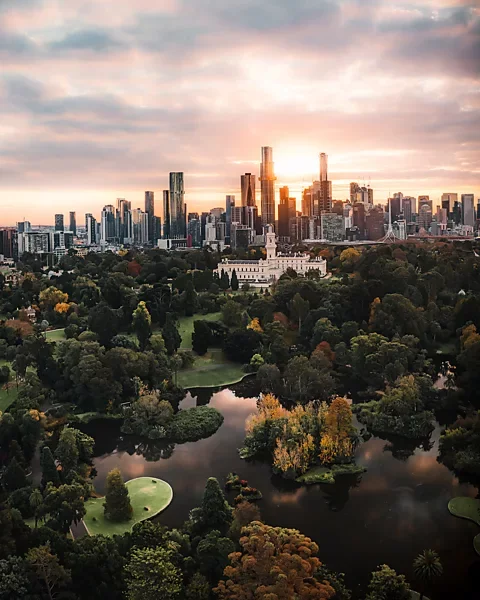
Melbourne, Australia
Both Sydney and Melbourne slipped in the rankings this year due to rising housing costs (which resulted in a lower infrastructure score), but Melbourne dropped just one spot to number four. Despite housing challenges, residents still rave about its cultural diversity, culinary scene and overall quality of life.
Melbourne rewards you for having an imagination, a strong work ethic and a community spirit - Gus Gluck
"From the high standard of living on a modest income to the kindest locals to the world-leading cultural sector, Melbourne rewards you for having an imagination, a strong work ethic and a community spirit," says Gus Gluck, business development and beverage manager of Neighbourhood Wine Group. A born Londoner, he also says that Melbourne's pubs are "iconic", noting favourites like The Napier, the Marquis of Lorne and The Standard.
Families in particular rave about all the features that make the city so kid friendly. "It's got affordable childcare, safe streets and I reckon some of the best playgrounds in the world," says Gluck. He regularly goes to the city's museums and exhibitions, like Heide Modern or at the State Library. The National Gallery of Victoria is currently hosting the Pharaoh exhibition in partnership with the British Museum until early October. Featuring more than 500 rare objects, ancient jewellery and tomb and temple architecture, it's the largest exhibition ever to be toured by the British Museum in its 270-year history.
Nature provides plenty of affordable entertainment here, too. "I am lucky to live by Port Phillip Bay, so the best way to enjoy an afternoon post-work is a beach walk or beach play with my children," says Joanna Reymond-Burns, founder and director of Reymond Communications. "We can often catch the sunset and enjoy a fish and chips dinner."
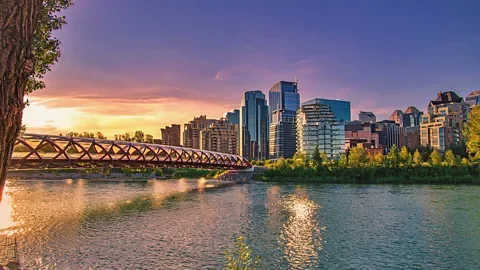
Calgary, Canada
Calgary inched up the rankings this year, now ranking fifth in the index (tied with Geneva) thanks to its perfect stability, healthcare and education scores. But it's the flawless blend of urban charm and natural beauty that has residents consistently singing the city's praises.
"Have you ever seen the Rocky Mountains on a crisp winter morning or watched the sunset over the prairies on a warm summer evening? It's truly breathtaking!" says longtime resident Samantha Odo. "The best part is I can easily access all this natural splendour just minutes from my doorstep." She especially loves hiking in Fish Creek Park or strolling along the Bow River.
Odo also highlights Calgary's thriving arts and culture scene, featuring world-class museums, galleries and performance venues. But the highlight of the year for visitors and residents alike remains the world-famous Calgary Stampede.
"Known as the 'greatest outdoor show on Earth', it is a 10-day festival and rodeo with hundreds of entertainment, rides and dining options, celebrating Western and ranching agriculture," says Phil Ollenberg, who moved here nine years ago. "I attend all 10 days of the festival, decked out of western gear, boots and a hat to match."
Ollenberg says he chose to live in Calgary for its energy, ambition and beauty, and he especially loves the festival, arts and music scene. "17th Avenue South and Stephen Avenue come alive on weekends with entertainment and nightlife," he says. Living downtown, he can easily walk to work and to events. Despite its reputation for being a car-centric city, he notes that Calgary has a high-ridership on public transit, and its light-rail transit (LRT) was the first of its kind in North America.
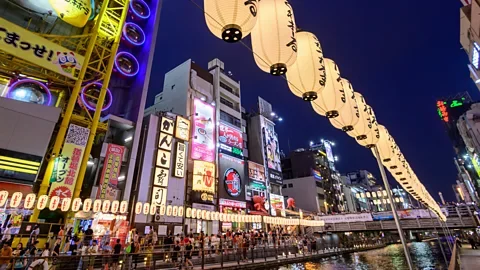
Osaka, Japan
The third most populous city in Japan, Osaka tied with Auckland at ninth place in the index to round out the top 10. With perfect stability, healthcare and education scores, the city also scored highly in infrastructure. Residents appreciate the ease that a smaller city brings, while also providing no shortage of amenities.
"Osaka is not as big or busy as Tokyo, so it's far less overwhelming but still convenient," says Kay A, owner of Tiny Tot In Tokyo, who moved here from Tokyo in 2021. "Trains are plentiful and run often and there are lots of great places to shop."
The city's thriving culinary scene also makes life more enjoyable here. "The food in Osaka is also some of the best in Japan - the city is known as 'Japan's Kitchen' after all," she said. "It's also affordable so we eat out often."
Osaka's location in the Kansai region makes it a good jumping off point for day trips. "On the weekends my family likes to drive out to other prefectures like Kyoto, Hyogo, Nara, Shiga and Wakayama," she explains. "There are many things to see and places to explore, especially when it comes to nature and historical temples and shrines."
But best of all, she's found Osaka is a place that makes her and her family feel welcome. "The locals here are very kind," she says. "I was shocked when I took the train in Osaka for the first time with my young daughter and was offered a seat, which never happened in Tokyo. It was very easy to make friends here."
(BBC)






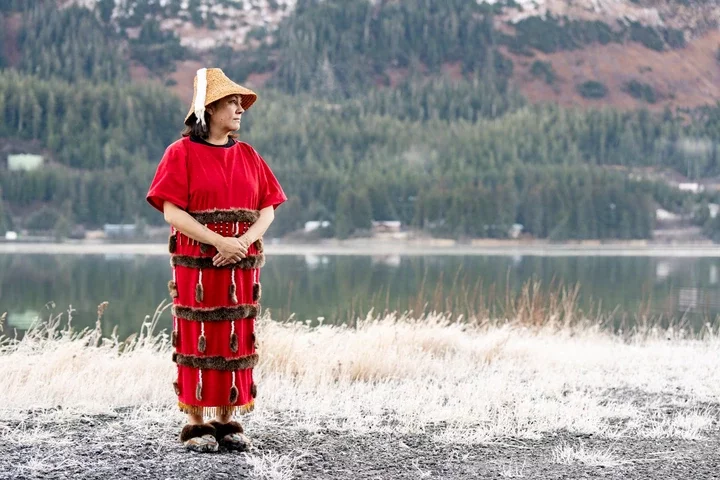


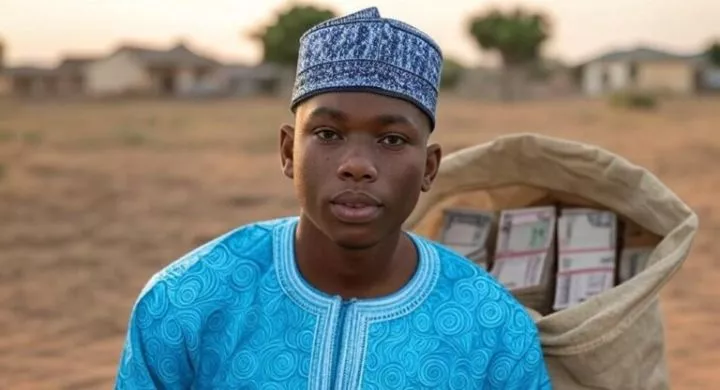






Comments